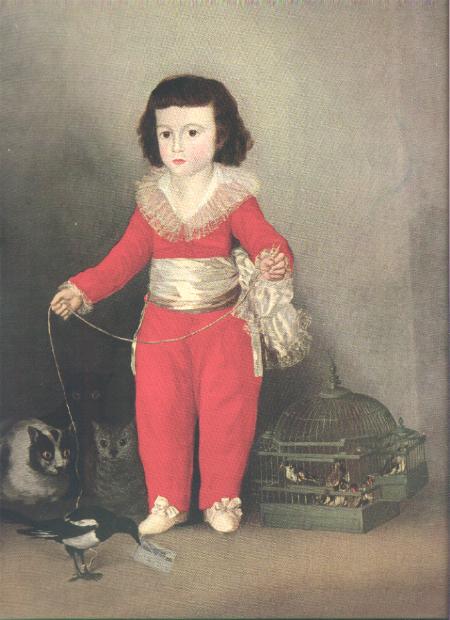Sonnet LXXV
So are you to my thoughts as food to life,
Or as sweet-season'd showers are to the ground;
And for the peace of you I hold such strife
As 'twixt a miser and his wealth is found.
Now proud as an enjoyer, and anon
Doubting the filching age will steal his treasure;
Now counting best to be with you alone,
Then better'd that the world may see my pleasure:
Sometime all full with feasting on your sight,
And by and by clean starved for a look;
Possessing or pursuing no delight
Save what is had, or must from you be took.
Thus do I pine and surfeit day by day,
Or gluttoning on all, or all away.
The 1609 Quarto Version
SO are you to my thoughts as food to life,
Or as ſweet ſeaſon'd ſhewers are to the ground;
And for the peace of you I hold ſuch ſtrife,
As twixt a miſer and his wealth is found.
Now proud as an inioyer,and anon
Doubting the filching age will ſteale his treaſure,
Now counting beſt to be with you alone,
Then betterd that the world may ſee my pleaſure,
Some-time all ful with feaſting on your ſight,
And by and by clean ſtarued for a looke,
Poſſeſſing or purſuing no delight
Saue what is had,or muſt from you be tooke.
Thus do I pine and ſurfet day by day,
Or gluttoning on all,or all away,
Commentary
- 1. So are you to my thoughts as food to life,
- As food is necessary to life, so are you necessary to my thoughts.
- 2. Or as sweet-season'd showers are to the ground;
- sweet-season'd = sweet smelling; of the sweet season of the year i.e. spring or summer. 'You are as beneficial to my thoughts as spring showers are to the ground'.
- 3. And for the peace of you I hold such strife
- And
for the peace of you = In order
that you might live an undisturbed life; in order that I might enjoy
the
peace of being with you. Probably there is a pun intended on piece.
Compare Hamlet:
BARNARDO. .........Say --
What, is Horatio there?
HORATIO A piece of him. Ham.I.1.18-19.
I hold such strife = I strive to be vigilant. strife implies contention, disputation, fighting, but one must bear in mind that it is partly the exigencies of rhyme which have forced the use of the word. A miser strives to guard his treasure from all comers, and the contrast is also drawn between the peace of the beloved and the strife which his worshippers endure. - 4. As 'twixt a miser and his wealth is found.
- 'twixt = betwixt, between. We still occasionally hear the phrase 'betwixt and between'. The relationship between the miser and his wealth is equivalent to that between the poet and his friend, as explained in the following lines.
- 5. Now proud as an enjoyer, and anon
- The next
eight lines describe the miser's
sensations, using him as a simile for the lover's joy's and anxieties.
as an enjoyer = as the miser enjoy's his wealth; as I enjoy being with you. Words such as proud, enjoyer, treasure, counting, pursuing, possessing, had, and all have secondary sexual meanings and play the base fiddle to the main part of the sonnet. They provide a light-hearted counterpoint to the serious questions that the lover asks himself.anon = immediately afterwards
- 6. Doubting the filching age will steal his treasure;
- Doubting = suspecting, fearing that;
the filching age = the miser's contemporaries, who, in his eyes, will steal anything. filching = stealing. - 7. Now counting best to be with you alone,
- counting best = considering it to be best. Also with a suggestion of the miser counting his treasure.
- 8. Then better'd that the world may see my pleasure:
- better'd that = made better because; feeling better in that. Notice that there is a change from the indirect third person of his treasure (referring to the miser) to the direct my pleasure. All the references from now on are to the writer, the miser being relegated to the background and only present by virtue of the experiences described, which are such as the miser might experience with regard to his locked up treasures.
- 9. Sometime all full with feasting on your sight,
- Sometime = at times.
- 10. And by and by clean starved for a look;
- And by and by = very shortly afterwards.
See note to line 7 Sonnet 73.
clean starved = utterly, totally starved. starved has the final ed pronounced. - 11. Possessing or pursuing no delight
- no delight = no other delight, no
other pleasure.This is governed by possessing or pursuing. 'I
neither
pursue nor seek to possess any delight except that which I might have
and
enjoy with you'. Some editors put a comma after delight,
which implies
'There is no delight in possessing or pursuing any thing at all. Only
what
is had from you is enjoyable'. This line and the next are a
foreshadowing
of the description of lust in Sonn.129
Mad in pursuit and in possession so;
Had, having, and in quest to have, extreme; - 12. Save what is had, or must from you be took.
- See note above.
took = taken. The past participle in this form is common in Renaissance English. 'Except what is had from you, or must be taken from you'. - 13. Thus do I pine and surfeit day by day,
- pine = waste away, starve (OED 4).
surfeit = overeat, eat abundantly, eat to excess (OED 3). - 14. Or gluttoning on all, or all away.
Or ... or = either ... or.
gluttoning = feeding gluttonously.
on all = on all my treasures.
all away = having all locked away, innaccesible to me.
